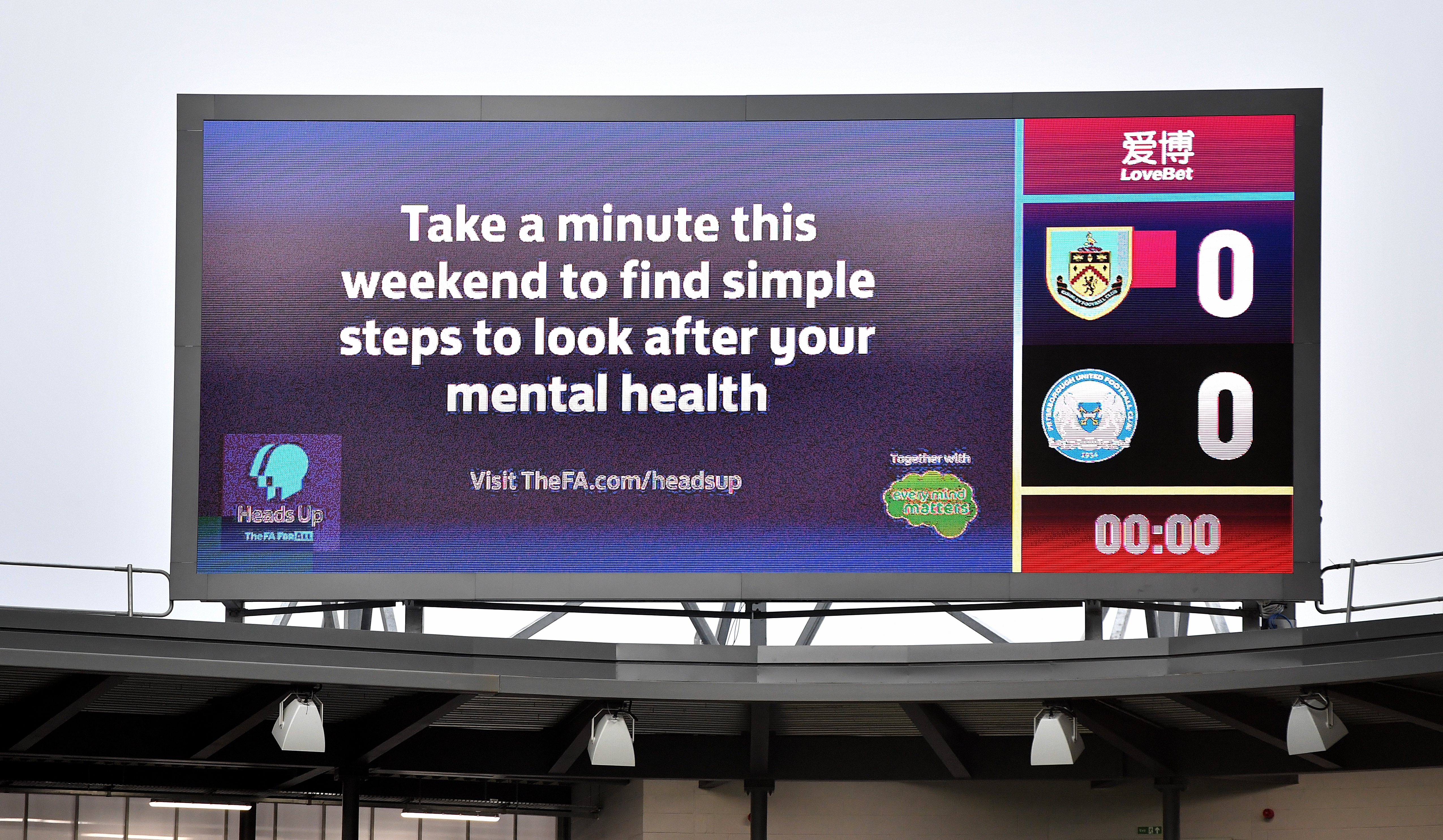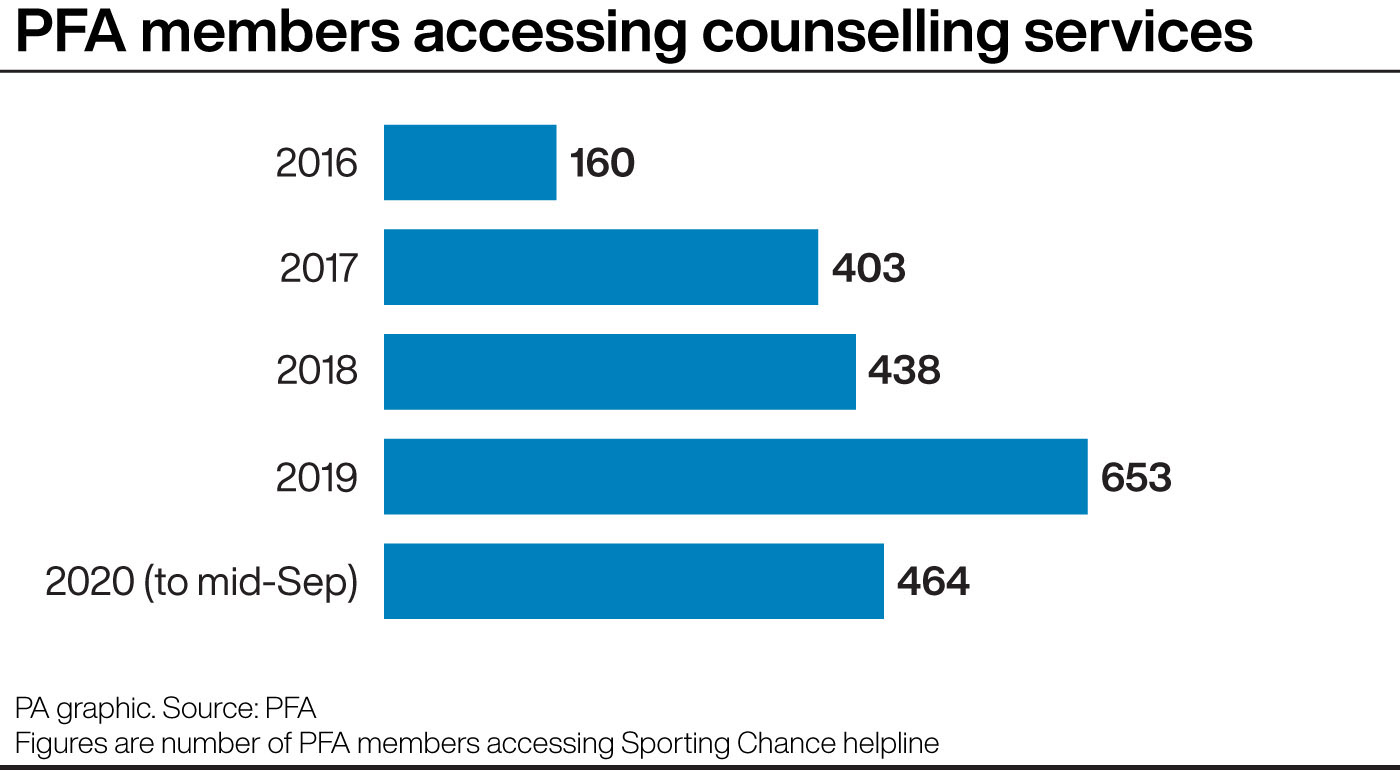Number of footballers accessing mental health support set to match 2019 figures

The number of current and former footballers accessing mental health support services this year is on course to match 2019 figures despite a total drop-off in calls during the national lockdown.
The Professional Footballers’ Association said 464 members had accessed counselling services provided by Sporting Chance up to the middle of September this year, compared to 653 in the whole of 2019.
Michael Bennett, the PFA’s head of welfare, said calls to the counselling line were down by “around 100″ in April and May compared to the same period last year, and after speaking to Sporting Chance and other support providers, he ascribed it to the difficulties in coming forward during the lockdown.
“We spoke to Sporting Chance who man our helpline and they said it’s been extremely quiet,” he told the PA news agency.

“You would have thought there would be more people ringing up given all the uncertainty in football at the time.
“I called the Samaritans and Mind and they were in a similar boat to us – the phone lines were very quiet.
“A number of people were finding it difficult to make phone calls being in such a closed environment, they couldn’t speak openly.
Get FourFourTwo Newsletter
The best features, fun and footballing quizzes, straight to your inbox every week.
“If you’re in a flat with your partner or you’ve got other family members living with you it was hard for them to make phone calls, because they just didn’t have a space.
Protecting footballers wellbeing is at the heart of our work. The PFA Charity operates a 24/7 helpline, with advisors on hand to speak to any current or former player who might need support. If you are struggling, please contact 07500 000 777. pic.twitter.com/4iIZO5bkFe— Professional Footballers' Association (@PFA) October 4, 2020
“That was the reason in the drop of people using the helpline and accessing the support.
“That’s where the dip took place, but we are making up for it now, we are seeing more and more people coming forward and that could be a result of now having that space to seek support.
“All these ‘what-ifs’ were going on in people’s minds, but they weren’t able to access the support to deal with that.”
Of the 464 members who had accessed the counselling service up to the middle of September, 42 per cent were current players, 55 per cent were ex-players and three per cent were relatives of the member who support was offered to given the circumstances of the case.
Five per cent were female players, the PFA said ahead of World Mental Health Day on October 10.
The figure for 2020 is already higher than those for the whole of 2018 (438), 2017 (403) and 2016 (160).
Bennett reported in May that just under a quarter of respondents to a PFA survey commissioned during lockdown said they felt depressed or had considered self-harm.
The survey received responses from 262 members, of whom 57 fell into what Bennett described as the “high-risk” group.
